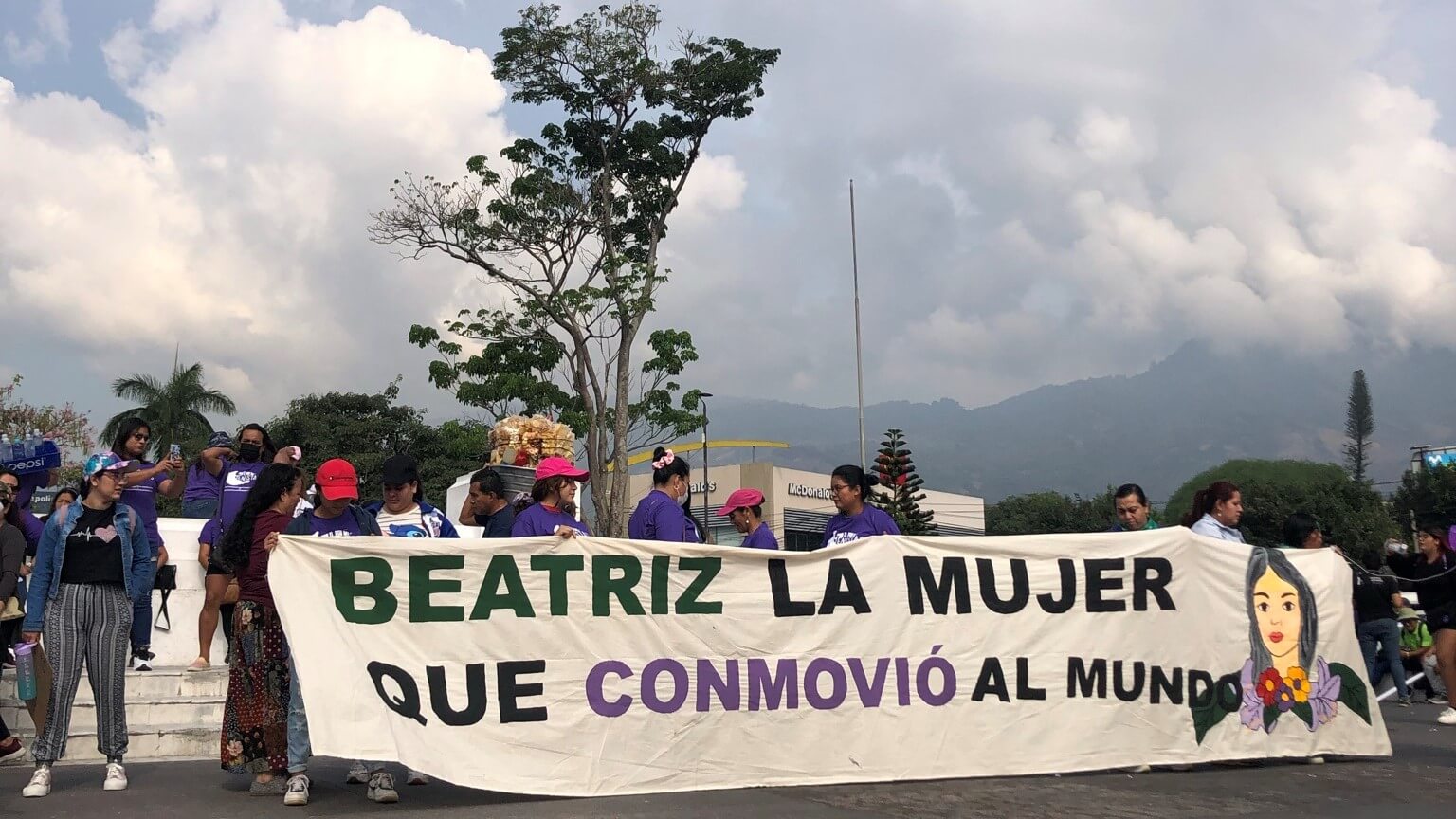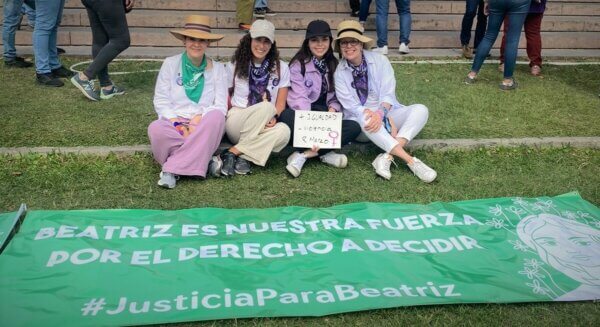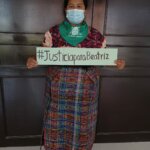
A historic hearing took place on 22 and 23 March at the Inter-American Court of Human Rights (IACHR) in Costa Rica: “Beatriz and others vs El Salvador”. It will be the first time that this independent body, which has a mandate to protect human rights in the Americas, will pronounce a judgment on the right to abortion, expected to fall at the end of this year.
Who is Beatriz?
At the time of the case, Beatriz was a 21-year-old mother living in extreme poverty in El Salvador when she received a painful diagnosis: she was pregnant with a foetus that was developing without a skull or brain and was therefore unviable, and this high-risk pregnancy was putting her own life at risk. Beatriz suffered from lupus, an autoimmune disease, and had already experienced complications in her first pregnancy.
Due to the absolute ban on abortion in El Salvador, Beatriz was unable to get the medical intervention she needed, even though it was intended to save her life. She was forced to go through a lengthy legal process, only to give birth by c-section three months later, an operation that was far more invasive than her doctors’ initial recommendation. During this stressful time in hospital, away from her first son of barely a year, Beatriz was also mourning her unborn foetus, which lived for only five hours after the operation.
“Beatriz was never the same,” her mother said at the hearing, where partners from ASF Canada were present. “The state failed her”.
Beatriz died in October 2017 following health complications after she had a road accident. Her body was not able to cope with the new hospitalization. Beatriz was 27 years old.
Today, Beatriz has become a symbol of hope for feminist movements across Latin America. Hundreds of people gathered at the gates of the court in Costa Rica to listen to the proceedings on screens set up outside, while several remote events were organised by feminist collectives in other countries in the region.

Photo: Part of the ASF Canada team in El Salvador. By Frédérique Forget, 8 March 2023.
“I admire you, I admire your courage, your resilience, your positive energy, a hug of solidarity from San Salvador”
“From Argentina, together with the mothers and grandmothers of the Plaza de Mayo, we also ask for #JusticeForBeatriz.”
On social media, there are several messages of support from different countries in the region.
Why is this case so important?
Abortion is a medical treatment that can be necessary to preserve the health, life and integrity of pregnant people. As states have an obligation to protect the right to health, including the right to sexual and reproductive health, access to abortion (which is ensured by, among other things, the adoption of clear protocols and guidelines for health personnel) must be strengthened by states.
“According to the WHO, between 4.7% and 13.2% of maternal deaths each year are due to unsafe abortions. Unsafe abortion is the third leading cause of death in Latin America”
said expert Cristina M. M., who is also a member of the World Health Organization’s Executive Board.
If the IACHR recognises that El Salvador is responsible for violating Beatriz’s human rights, this legal precedent could have repercussions not only in El Salvador but also in other countries where access to abortion continues to be limited such as Honduras, the Dominican Republic and Haiti.
The human rights at stake in the case of “Beatriz and others vs El Salvador” are the rights to life, personal integrity, judicial guarantees, privacy, equality before the law, judicial protection and the right to health. A declaration is also sought that Articles 1 and 6 of the Inter-American Convention to Prevent and Punish Torture and Article 7 of the Convention of Belém do Pará have been violated.
Abortion rights around the world
4 out of 10 women live in countries with restrictive abortion laws, as classified by the Center for Reproductive Rights. Restrictions can vary: some states allow abortion only if the life of the pregnant person is threatened, for maternal health reasons or when the pregnancy is the result of rape.
- Lawyers without Borders Canada files amicus curiae brief in the case of « Beatriz vs El Salvador »
- Recommendations to the IACHR in the Beatriz case





